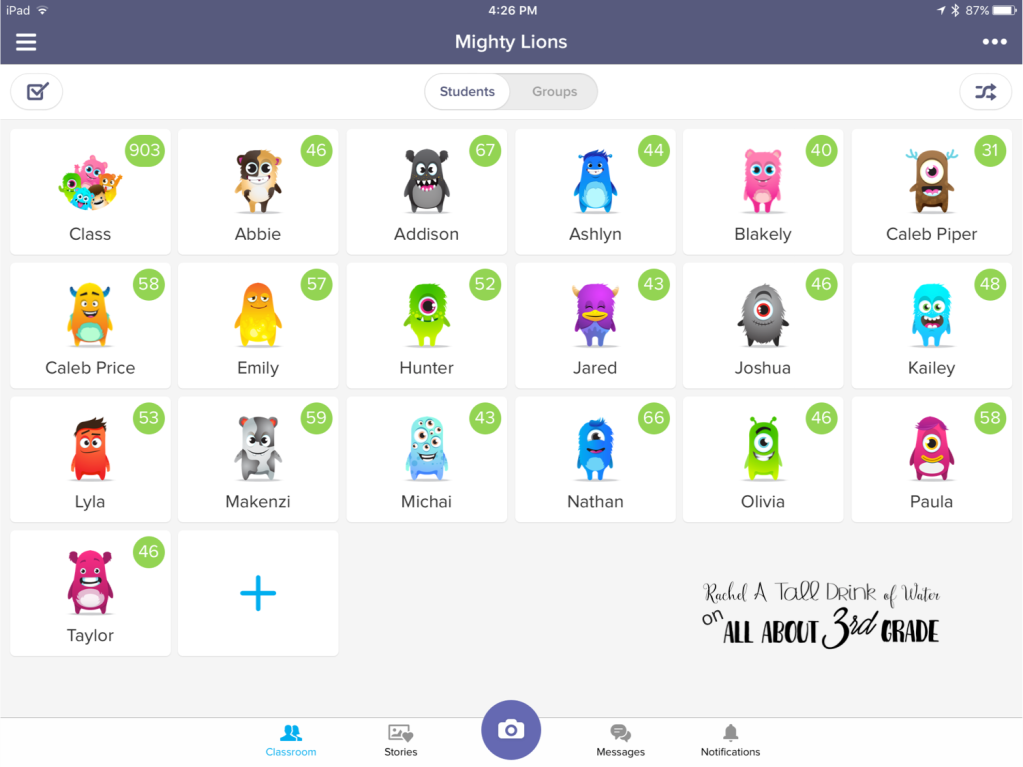Larry Cuban on School Reform and Classroom Practice: Teachers as Micro-Politicians: Class DoJo
Teachers practice micro-politics in their classrooms daily. Yet most observers of teaching fail to see this obvious fact. or, in seeing teachers act politically, choose to give it another name. Strange, but true. Let me explain.
Historical context for teachers acting politically
For decades, educators have winced at using the word “politics” linked in any way to their work with children and youth in schools. Why has there been a distaste for the word?
At the beginning of the 20th century, Progressive reformers divorced partisan politics from the conduct of schooling. Governance reforms led local school boards to dump party hacks from their ranks and recruit business leaders and civic-minded professionals to serve. Civil service regulations ended the buying and selling of classroom jobs. Party politics were banned from schools and classrooms.
Not only because of the Progressive movement a century ago but also because separating politics and schools became embedded in professional training of teachers. The power of that norm remains strong today. It should come as no surprise, then, that few, if any, individual teachers take public stands on educational reforms except through their unions and professional organizations. When they do speak out, it is as private citizens. Individual teachers are expected to implement policies that school boards, governors, state legislatures, and the U.S. Congress–authorize. They are NOT expected to campaign publicly as teachers in the district to get school boards or voters to adopt particular policies.
Now, here is the rub. None of what I just said means that teachers do not engage in politics. They do politick after they close the classroom door, quiet the class, and begin a lesson. How does that happen?
Teachers as micro-politicians
Teachers, of course, do not like to talk about being “political.” Euphemisms like “I run a tight ship in my classroom” or “working with parents is essential,” “kissing up to superiors,” “mobilizing faculty support for the new program”—as I have heard such phrases over the years–-are favored, not words that paint teachers as classroom politicians.
One must ignore the euphemisms, however. What teachers do in their classrooms before, during, and after the lesson is micro-politicking. Determining who gets what, when, and under what circumstances to achieve desired objectives is the classic formula for political behavior. And that is what teachers do.
And here is why they have to act politically.
Teachers in nearly 100,000 schools across the U.S. are expected to keep classroom order, cover curriculum standards, get students ready for tests, wipe noses and give students a shoulder to cry on. They allocate their time and energy to instruction while nervously glancing at the wall clock. They establish classroom rules while negotiating compromises with students over what is acceptable classroom behavior and academic achievement. In short, they act politically in their classrooms.
This political behavior becomes clearer when describing a popular classroom management tool ClassDojo used in many classrooms across the nation. ClassDojo enables teachers to track their students’ daily behavior and permits teachers to add and subtract points based on what students do or not do before and during a lesson. From one student raising her hand to answer a teacher question and another student’s continual chatting with a classmate are behaviors that teachers can award or deduct classroom points leading to individual student rewards and penalties.


“Students are given their own [cartoon] character from the classdojo.com website and are encouraged with points for positive behavior in class.”
To understand how ClassDojo is a political tool teachers use to manage children’s classroom behavior, one has to consider the larger context of tax-supported public schools in the U.S.
The Big Picture
As long as there have been tax-supported schools–over two centuries now–states have asked parents to send their young children to school; over a century ago, states passed compulsory attendance laws that required parents to send their young children and youth to be in school or be fined. States vested teachers with the authority to direct students to learn required content and skills in order to graduate school. Through their lessons and their personalities, teachers sought to achieve local school board goals.
To motivate students who were compelled to be in class to learn and to gain their compliance and cooperation, teachers then and now were totally reliant upon their students for classroom success. Without student cooperation, teachers were dead in the water. As early as the mid-19th century, then, public school teachers developed systems of classroom rewards and penalties. They handed out gold stars and publicly praised individual students (or the entire class) for “good” work and behavior as they saw fit. There were also punitive responses when teachers paddled, caned, and slapped uncompliant students.
By the end of the 20th century, teachers had come to rely less on using switches, twisting ears, and humiliation and more on praise and tangible rewards, again intermittently administered as teachers decided which of their students should get what in order to secure compliant student behavior and cooperation in covering what had to be learned. Those past actions by teachers to gain student compliance fits the definition of politicking in deciding who gets what praise and penalty, when, and under what circumstances in order to achieve school and district goals. And this is the popular classroom tool of ClassDojo enters the picture.
Teachers using ClassDojo in 2023 to motivate their students while gaining compliant behavior and cooperation has become the most recent instance of practitioners glomming onto a behavioral management system that gets students to pay attention and behave during lessons. Thus, in using, ClassDojo, teachers act politically.
So what? Why is it important to establish that teachers act politically in their lessons to manage students?
Because teachers practicing micro-politics in classrooms do essential, not distasteful, tasks that they must perform to achieve school goals such as student literacy, civic engagement, job preparation, moral development (and, yes, compliant and cooperative behavior). Every teacher, in different ways and in different proportions, performs these basic tasks: They teach prescribed content and skills that the state and district require and they maintain order through managing groups of children and youth to achieve these organizational goals (e.g., ClassDojo). The simple recognition of political behavior as a natural part of classroom life would help both professionals and lay people understand the real world that teachers inhabit every single day. Teachers, then, are micro-politicians.
This blog post has been shared by permission from the author.
Readers wishing to comment on the content are encouraged to do so via the link to the original post.
Find the original post here:
The views expressed by the blogger are not necessarily those of NEPC.
